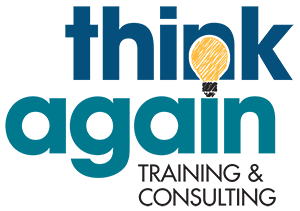Dr. Romina Pacheco has been working with Think Again Training & Consulting since 2016, but first started cofacilitating with some other Think Again facilitators since lonnnnng before that. She has cofacilitated trainings and staff retreats at the Arcus Foundation, Lesley Ellis School, and more. Romina is currently available for local-ish trainings, within an hour or two travel of her home base in western CT.
One thing that Romina appreciates about working with Think Again is that we’re always invited to the spaces where we work. “Half the work is done just by the fact that you’re being invited in,” she says, “and you’re having conversations with people who want to have these conversations about privilege, oppression, and so on. And we don’t do cookie cutter trainings, like when there’s a training manual and the facilitators just say, ‘OK, turn to page 15!’ Instead, it’s all very personalized to what the client needs.”
Guiding all of Romina’s work is a goal of transformation and liberation—for everyone, but particularly for people on the margins. Romina says that being born and raised in Venezuela affected the lenses she brings to her work. “Being an immigrant who came to the U.S. as an adult has definitely impacted the way I see and understand things,” she says, “And I’m Black Latina, but I also have many identities that are privileged. This helps me connect with people and try to understand other people’s experiences.” Liberation work is something she takes seriously as part of her everyday life.
Although Romina’s experience outside Think Again has mainly focused on multi-cultural affairs in higher education, more recently she’s been doing more work with K-12 schools. Romina first connected with Think Again because of a shared experience and training doing intergroup dialogue, a practice where groups of people come together to talk across social differences. In the future, she would love the opportunity to facilitate intragroup dialogues, or to facilitate trainings where people who share marginalized identities, for instance, Black people or immigrants, come together to talk about the deeper issues we have amongst ourselves. She sees this work as an opportunity to explore and transform the things that people on the margins internalize.
